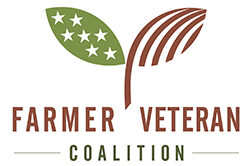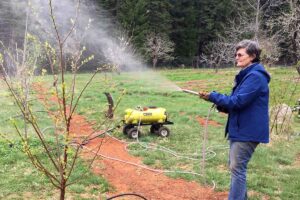“Terror is not a new weapon. Throughout history it has been used by those who could not prevail, either by persuasion or example. But inevitably they fail, either because men are not afraid to die for a life worth living, or because the terrorists themselves came to realize that free men cannot be frightened by threats, and that aggression would meet its own response. And it is in the light of that history that every nation today should know, be her friend or foe, that the United States has both the will and the weapons to join free men in standing up to their responsibilities.”
Address by President John F Kennedy to the UN General Assembly
September 25, 1961
Since October 7th the reports and images on the war in Israel have been heart wrenching to process. As I have sat down to write this newsletter article on the 16th of October, I learned that an additional 2,000 U.S. troops were told to prepare for deployment. As FVC is a part of the military community these deployments affect our members and their families, and we all pray for the safety of everyone in harm’s way.
It seems fitting that last week the Department of Veterans Affairs announced the first annual National Buddy Check Week. During the week – which will take place between October 16th to October 20th – the VA encourages Veterans to talk to ten of their fellow Veterans and check in with them. I encourage you to continue this practice throughout this fall and winter. With all that is happening in our country and the world, I encourage our state chapters to unite their members and provide the opportunity and space for fellowship and camaraderie. It is amazing the friendship and trust that can be cultivated over a potluck dinner. If you would like to be connected with the local leadership of your state chapter, please reach out to our call center at 855-FVC-FARM or email support@farmvetco.org and we will assist you.
Despite the prevailing circumstances, time marches on. Veterans Day and FVC’s Conference in Washington, D.C. is approaching. I look forward to talking to many of you. I am sure that you are aware the 2018 Farm Bill expired on September 30, 2023, as government officials focused on passing a 45-day continuation of the federal budget. Besides extending appropriations for seven weeks, the measure also includes several policy extensions for programs that were scheduled to expire.
The timing and consequences of the farm bill expiring vary by program. According to the Congressional Research Service Report on the Expiration of the Farm Bill there are two principal expiration dates: September 30, 2023, and December 31, 2023. The major issues and consequences for expiration are the following:
- For programs with mandatory funding that is provided by the farm bill and have provisions that expire at the end of FY2023, authority to operate may cease.
- For programs with a fiscal year authorization that are funded with discretionary appropriations, or for programs with mandatory spending authorized but not appropriated by the farm bill-such as the Supplemental Nutrition Assistance Program (SNAP) – the continuing resolution allow these operations to continue.
- For the farm commodity and dairy support programs that expire after the 2023 crop year, the consequence of expiration begins on January 1, 2024, when inactive and outdated laws – commonly called “permanent law” – would be restored for dairy, the first commodity affected in the new crop year.
- Some programs had their expiration dates extended beyond the expiration of the farm bill by other legislation. The Inflation Reduction Act of 2022 extended some – but not all – conservation programs through FY2031.
- Some programs, such as crop insurance, are permanently authorized, do not expire, and would not be affected by farm bill expiration.
- For the farm commodity programs that face consequences after January 1, 2024, permanent law refers to a set of non-expiring provisions from the 1938 and 1949 farm bills that remain in statute but are temporarily suspended by each recent farm bill.
Permanent law does not recognize relationships in productivity gains and technological advances in agriculture. It is inconsistent with modern government policies that reduce the effects of market intervention and that meet U.S. obligations in the World Trade Organization. Permanent law would support dairy, wheat, rice, cotton, and corn but would not support soybeans, peanuts, and sugar, among other commodities.
If the permanent law suspension were to expire, the U.S. Department of Agriculture would be required to implement permanent law, which is likely more expensive to the government and consumers than the current farm bill. Under permanent law, USDA would be required to support eligible commodities at levels that exceed 2023 market prices. USDA has found during previous farm bill reauthorization that billions of dollars of additional government expenditures could occur if the suspension were to expire.
So, it appears that the last seven weeks of the year are going to be interesting to watch as well! If you have any questions, please let us know and we will secure answers for your specific circumstance.
Hang in there everyone….it may be a bumpy ride – but we will make it to the end of the year one way or the other!
Best Regards,
Jeanette Lombardo






